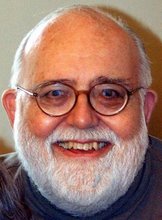Now that you have been promoted to teach AP (congratulations, by the way), I hope you will at least consider why we have our prejudices here on this list about "classics." The reason is that AP Language and even Literature is a different KIND of English teaching, not the same as the "language arts" in the lower grades, where reading is just reading, and writing is mainly for fun and delight, and acceptability is a matter mainly of grammar and usage conventions.
AP is "college English," or university English, or academic writing, given on the high school campus, and as such the inheritor of 3000 years of cultural tradition arising from the freedom in the Greek city states of every citizen to present his case himself in court and in debate, in fact the necessity of every citizen's being a rhetorician in order to defend his party's and his own interests, and, of the critique of that tradition initiated by Socrates/Plato and Aristotle and now incorporated in "modern rhetoric."
People who teach the modern rhetorical tradition should be grounded in the ancient, first in the Homeric sources for all of Greek culture, and then in the tragedies which extended literary instruction in freedom and justice for the Greeks, and finally in Plato who begins the tradition of the application of logic to arguments, an application extended and perhaps perfected in Aristotle.
What happened is that a democracy, Athens, theretofore under the earlier educational regime(Homer and the tragedies), convicted a harmless old man, Socrates, because he kept asking for definitions of the words his fellow citizens used in arguments, and they couldn't define them adequately. He taught the young men that kind of questioning (dialectic), which they applied to their parents and elders, who likewise could not answer adequately. To shut him up they charged him, hoping he would flee, but Socrates thought that he should argue the case in court on the basis of logic. That infuriated the jury of 501 and after convicting him of corrupting the youth, they decreed the death penalty and executed him. They hadn't really intended to kill him, just to get rid of him or silence him, but Socrates managed to show forever that a democracy can commit an evil by being illogical. (If you watch some of the debates in Congress on CSpan you will be unhappily reminded of the cesspool of bad argument in which Socrates drowned.) Plato was SO offended by this miscarriage of justice, that he set out to indict "eternally" the specious methods of argument customary in the democratic assemblies and courts of his time. This he succeeded in doing. And taught a new way to argue in the grove of Academus outside of Athens, in his Academy.
Thus AP English is not really English, but "basic philosophical argument" as required at all levels in our OWN universities and academies. Our rhetoric teaching today expects a foundation in logic, in solid substance, in sticking to the subject, for instance, a demand that when Socrates made it was novel in political or other debate (still is, judging by the campaigns so far). Our rhetoric today expects the logical sequence of a "speech" (i.e. essay) to hold together. This Aristotle formulated in the syllogism, which he invented. Once a sound argument is achieved, modern rhetoric THEN concerns itself with how to arrange the parts of the argument to be most attractive to a hearer. We all know logic is not enough by itself. ( If it were E=mc2 would be intelligible by itself to everyone.) We need first to see the ethical character of the speaker shine through his/her words. Then we want to see an awareness of the audience, even as a class of students wants to have a teacher who likes them, and considers their needs. And, of course, we want to see the argument laid out in a fair way, considering counter arguments.
Now I love Tom Clancy, but I find Plato even more engaging, really quite enough to occupy me even during an SSR. If you read only Clancy in front of your AP students, you are missing an opportunity. If they see you working on the Crito or even the Phaedo, they might ask you what you are reading, and you will have a teaching moment. Likewise Homer, Sophocles, Aeschylus (who actually fought at Marathon), and Aristotle.
On the other hand, SSR SHOULD be fun, for you as well as for the kids. And if your supervisory role makes it difficult to make progress in Plato and Aristotle, let me suggest the historical novels of ancient Greece penned by Mary Renault, and of ancient Rome by Cathleen McCullough, both series beautifully written and as engaging as any thriller.
Since Plato takes rereading to get much out of him (like an infinitely renewing shrimp cocktail), you could start with The Apology, Plato's version of Socrates' trial, and plan on rereading it and the accompanying Crito and Euthyphro (where Socrates confronts a pious conservative farmer with his new mode of argument) over the year. Be patient with yourself. You are sipping the fountain of all western spiritual waters. Take it slowly. Socrates/Plato showed us an entirely new potential of the human being which we all, or most all, contain within us, and which AP has the privilege of promoting along with college and university education world wide.
Sunday, August 10, 2008
Tuesday, August 5, 2008
SEVENTY YEARS OF JUNK
What is upstairs? What's been put away in the attic? What old trunks of letters, old books, old toys, ancient typewriters, old magic paraphernalia, movies, yearbooks, pre-yearbook scrapbooks, and family photos. Let's go see.
Subscribe to:
Posts (Atom)
